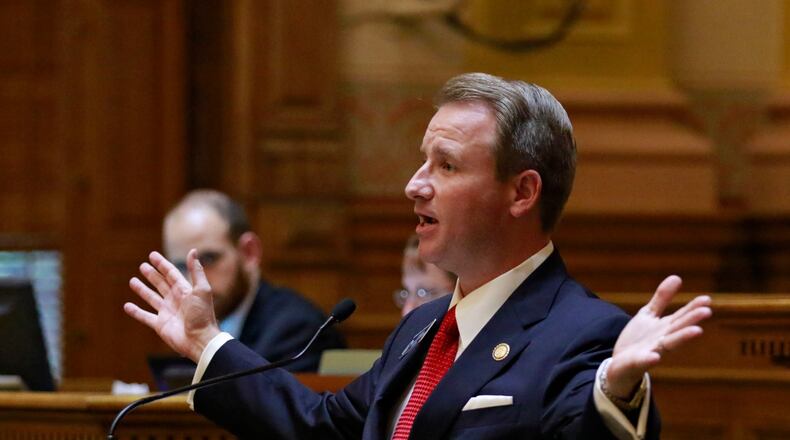The Georgia Senate approved legislation Monday that would mandate that the state do an economic analysis of any new special-interest tax break before the General Assembly votes on it.
The measure, Senate Bill 119, was paired with Senate Bill 120, which passed last week and would mandate a similar review of tax breaks before they could be considered for renewal in the future.
The sponsor of the bills, state Sen. John Albers, R-Roswell, said it only makes sense that the General Assembly know whether such tax breaks — which flood the Legislature every year — will do what their sponsors promise they will do: generally create lots of jobs.
“This is great fiscal policy,” Albers told colleagues before they voted 55-0 for SB 119.
Currently, such tax breaks — which cost the state hundreds of millions of dollars in revenue each year — often occur after supporters provide testimony or data from industry lobbyists or other parties that would benefit. Those advocates typically tell lawmakers the tax break will create or save jobs, and legislators give the OK.
Some tax breaks pass today without lawmakers being told how much they will cost the state, or save the business or industry. Businesses hire lobbyists specifically to get such tax breaks passed because they can mean millions of dollars to a company.
Many times tax breaks pass in the final hours of a legislative session, when lawmakers are taking hundreds of votes and have little time to review what they are voting on.
Sometimes lawmakers later review what happens after the tax breaks pass, sometimes not.
Albers’ bills passed the Senate last year but hit a roadblock in the House. Senators in both parties have pushed similar bills in the past.
House Ways and Means Chairman Brett Harrell, R-Snellville, said he and other House members liked the idea, but they had some questions last year about how it would work.
“At the end of the day, we want to make sure the taxpayers are getting a return on their investment,” he said. “This is their money.”
All tax-break bills start in the House. The House Ways and Means meeting room overflows each January through March with lobbyists, often representing individuals, companies or entire industries wanting to either get a tax break or stop taxes from being put on them.
Frequently, questions are directed at lobbyists for those supporting a tax break because they are the ones with all the information that they say justifies what they are seeking.
They range far and wide — from a sales tax break passed in 2017 for the owners of mega-yachts to get repairs done at a Savannah boatyard, to a jet-fuel tax break first passed in the mid-2000s that saves Delta Air Lines $40 million a year. This year the Ways and Means Committee, with Harrell as its new leader, is keeping a busy schedule, with railroads among those asking for a tax break.
Making Albers' bill particularly problematic in the current legislative environment is that several tax breaks might be tacked onto a single piece of legislation — called a "Christmas Tree" — at the end of the session. Changes are made at the last minute. It would be difficult to get an economic analysis of legislation that has four or five different tax breaks attached to it in a relatively short period of time.
Also, as Democrats have pointed out, they would have no impact on permanent tax breaks already on the books, only newly proposed ones or current ones with sunset provisions that must be reconsidered every two or three years.
Stay on top of what’s happening in Georgia government and politics at ajc.com/news/georgia-government/.
About the Author
Keep Reading
The Latest
Featured




